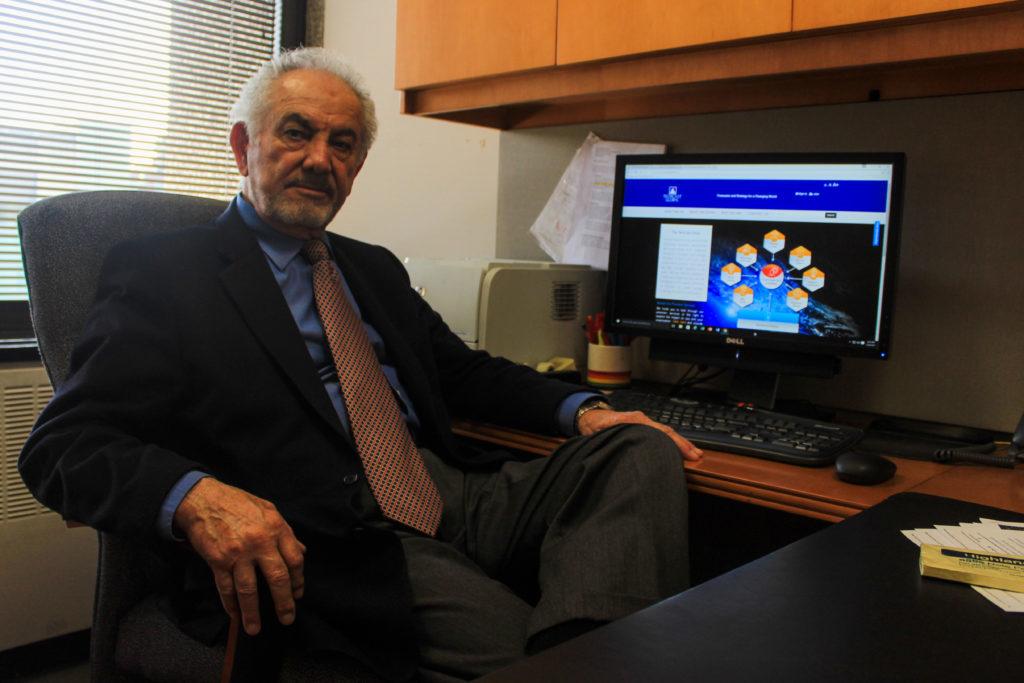One business professor’s company is moving forward with a partnership in Singapore after two representatives from the country’s government paid him a visit over spring break.
Two representatives from the Intellectual Property Office of Singapore met with William Halal, a professor emeritus of management, technology and innovation, earlier this month to discuss a partnership between their government and Halal’s company, a technology forecasting program that helps large organizations prepare their economies for future innovations.
Last August, Halal and his colleagues began brainstorming a customized version of TechCast specifically for Singapore, he said. Members of the company are now assembling a team of technology experts with perspectives on Southeast Asia to tailor the program to the country’s economy.
TechCast Singapore, which should launch by 2018, will be a model for the team to create similar nation-specific programs around the world, and company employees are already exploring bringing TechCast to Europe and Latin America, Halal said.
Halal’s technology helps governments and organizations adapt to globalization in the economy, which is particularly important when nationalism and apprehension about globalization is on the rise, he said.
“TechCast is intended for strategic planners and decision makers,” Halal said. “In principle, all large organizations need something like TechCast because they’re all struggling with the technology revolution and globalization.”
Halal developed TechCast Global about 20 years ago with graduate students in one of his classes and a few business school colleagues to help companies and governments predict and increase economic stability and growth.
By tracking tech trends, analyzing data and consulting experts, TechCast predicts the impact of future innovations and low-probability, high-impact events that Halal called “wild cards.”
As TechCast becomes more prominent in the media, including citations by the National Academy of Sciences and predictions featured in The Washington Post, Halal said his company’s notoriety has brought recognition to the business school.
“I think TechCast is one of the few business ventures started by our faculty and it is highly successful,” Halal said. “We hire our students, publish first-class articles, give countless talks and otherwise contribute to GWU.”
A representative from the Singaporean government said the government is trying to avoid situations in which massive technological developments blindside them, and that using TechCast is a way to prevent that from occurring.
Ang Wunly, the senior assistant director of the Singapore Patent Office, said the partnership will help Singaporean companies stay “on the edge” of innovation.
“We’re thinking long-term right now,” Wunly said. “We are for globalization but our country is small. We need to progress at a steady rate. We need to develop unicorns and we need our companies to start innovation.”
The Singaporean patent office is also working with other government agencies to develop the system, she said.
Hassan Syed, a partner at TechCast Global, said the company’s technology is important because, unlike other forecasting softwares, TechCast accounts for a diversity of opinions needed to predict the future through an expert panel.
Syed said that by August, TechCast plans to create a panel of about 20 experts to be the first workers on the partnership and create forecasts by the end of 2017 as a pilot to test out the system.
“It’s really like either you ride the horse or the horse is going to drag you,” Syed said. “Either you understand where these technologies are going, or you’re going to be facing unintended consequences, like a deer in the headlights.”





